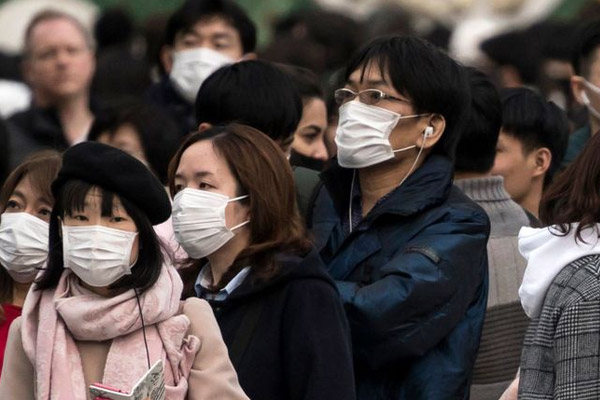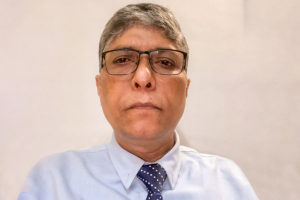“South Korea & Taiwan have learnt their lessons and tackled Covid-19 well”
Dr. Gangadharan S, Professor of Economics, Madras School of Economics, explains how the world economy has been crippled by the coronavirus pandemic, the consequent supply chain disruption and the sectors which are most likely to be hit by this disease, in his exclusive interaction with TPCI.

TPCI: What impact would the halt of production in the wake of Coronavirus outbreak in India have on its GVA?
Dr. Gangadharan S (GS): GVA is the measure of the value of goods and services produced in an area, industry or sector of an economy. The outbreak of COVID-19 has put the world economy in distress. The contribution from individuals/industry/sector to the economy would be low due to social distancing action taken by the government. The resumption of production is not possible in the immediate future as the raw materials for many industries are imported from countries severely affected by COVID-19. India is one among 15 countries severely affected by Coronavirus. According to the data published by the United Nations Conference on Trade and Development last week, the impact to the world economy due to COVID -19 would be a loss of US$ 2 trillion (Rs 148 lakh crores). In India, the trade loss would be around US$ 348 mn (Rs 2575 crore).
TPCI: Which are the key sectors that are most likely to be hit due to this?
GS: Manufacturing, tourism, transport, exports, trading and entertainment sectors are severely affected. Global trade is under recession. As per the last week estimation, the Indian Railways has incurred a loss of Rs 450 crores. Many states have enforced section 144 and sealed their borders; the interstate transport of both public and private transport businesses has incurred a huge loss. With the closure of cinema theatres, cinema shooting, malls, museums, zoos, parks and other recreational centers, the entertainment industry that employs a large number of people has suffered a huge loss.
TPCI: What is your view on the efforts being taken by the Indian government to minimise the impact of Covid-19 on the economy? What more can be done in this regard?
GS: Among the COVID affected countries, India reported the lowest number of incidences of COVID -19. As on date, the number of people infected by COVID –has crossed 500, of which, 24 have been treated and 10 succumbed. WHO and leaders of many countries have appreciated India’s efforts in controlling COVID without having much sophisticated health kits. The people of India have obliged to the appeal by the Prime Minister of India to stay inside on March 22, 2020. This effort of isolating people for more than 14 hours definitely had an impact in controlling the virus. The Government of India has identified 75 districts with confirmed COVID cases and put on closed surveillance in controlling the virus. Many states have implemented 144 for ten days to isolate the movement of the people. Learning from the experience of the countries that have successfully contained the virus by social distancing, the Government of India imposed a 21-day curfew on the entire nation from the midnight of 24/03/2020.
Following steps can be taken in addition to tackle this crisis:
(a) Quality of screening of people coming from abroad and other states
There are cases where passengers coming from abroad and identified negative at the Airport were found positive and admitted to the special wards. So effective screening at the point of arrival will contain the virus rather than tracing them after they get into their home.
(b) Large deployment of medical professionals in the coronavirus prone districts
Like China, that has deployed 40,000 medical professionals (Doctors, Nurses, Lab Technicians) in Wuhan for three months and successfully controlled the disease, deployment of medical professionals in the 75 identified districts will bring down the incidence of COVID.
(c) Search for availability of Medicine to cure the disease and get them from wherever it is available at whatever cost
Reports have come that CUBA has come out with a medicine to cure the disease. In US, the Roche Medical Company has come out with a vaccine that cures patients within 3 hours of injection. Good news is that Hydroxychloroquine used to treat malaria is being studied to determine its effectiveness to treat COVID – 19. The confirmation from the Indian Council for Medical Research (ICMR) is awaited for use of this medicine for treating COVID-19 patients.
TPCI: The pandemic is expected to hit those at the bottom of the pyramid the hardest. What measures do you suggest to contain the impact for them?
GS: The prime concern of the government is to take care of the daily wage earners as they do not have job for 21 days. Though some voluntary agencies and trusts are providing food for them, the government should work out the strategy for them.
The payment of EMIs is worrying lot of middle-income class people. The Government should look into this and postpone the payment of EMI at a later date without penalty for late payment.
A monetary benefit is a welcome measure. But the quantum of such monetary benefit should be reasonable. A mere Rs. 1,000 will not compensate their losses. The distribution channel should be transparent and should really reach the affected people. At the same time the Government staff available for controlling the COVID should not be diverted for this work that will deteriorate the objective of eradicating the virus.
TPCI: What can we learn from countries that have been better at managing this crisis and similar crises in the past?
GS: South Korea has been able to manage better because they learnt the lessons during the Middle East Respiratory Syndrome (MERS) virus attack during May 2015 to July 2015.
Taiwan is another country that set an example in controlling Corona Virus effectively. Taiwan reported only 45 cases so for despite the fact that Taiwan is just 110 KMs from China and frequent travellers from China. Like South Korea they also learned lesson from the SARS epidemic in 2003. How do they control the Corona attack?
(a) Impressive coordination in implementation at the first signs of trouble.
When the news about the Corona virus outbreak started coming in the beginning of December 2019, they acted swiftly in quarantining their citizen. The Taiwanese health officers started boarding flights arriving from Wuhan to check passengers for symptoms before they could leave the plane.
(b) An action plan framed
Around 124 action items include travel bans, quarantines, surveillance steps, social distancing, and more framed.
(c) Effective use of Information Technology in identifying the people with symptoms of COVID
Databases belonging to the National Health Insurance Administration, National Immigration Agency, and Customs Administration were integrated, allowing artificial intelligence and big data techniques employed to identify those at greatest risk through their travel and medical history. Hotlines were made available to provide accurate advice for people who fear that they or their loved ones are showing COVID-19 symptoms, and with the help of the police, mobile phone records were used to track the social contacts of those infected with the Coronavirus.
The lessons we could learn from South Korea and Taiwan are to act early, effective coordination between various agencies and use of IT in identifying the victims and tracing their movements. Let us hope normalcy returns to India from April 15, 2020 onwards.

Dr. Gangadharan S is a highly discerning scholar with several prestigious degrees to his credit – M.A. (Eco), PG. Dip. HRDI, PG. Dip. Mgmt (OUBS, U.K), Ph.D (University of Madras). He has three decades of experience in Teaching, Research and Academic Administration and has published numerous research papers in leading research journals. His current areas of interest include – Public Finance, Financial Modelling using Excel Skills, Growth, Management Information System, Development and Capital Market. The views expressed here are his own.













Leave a comment